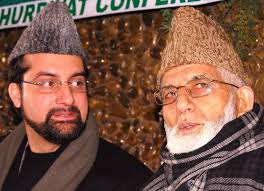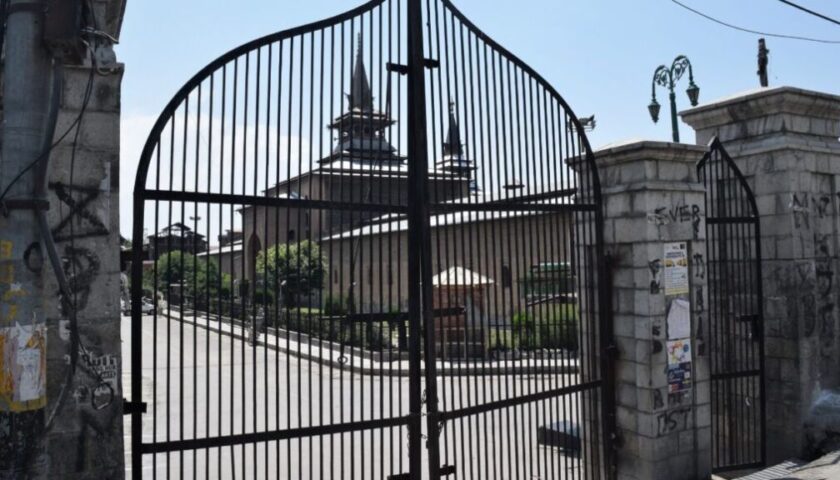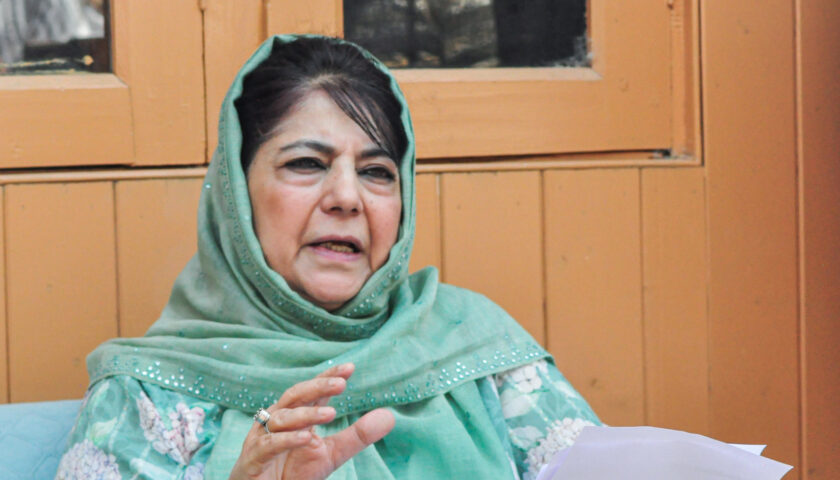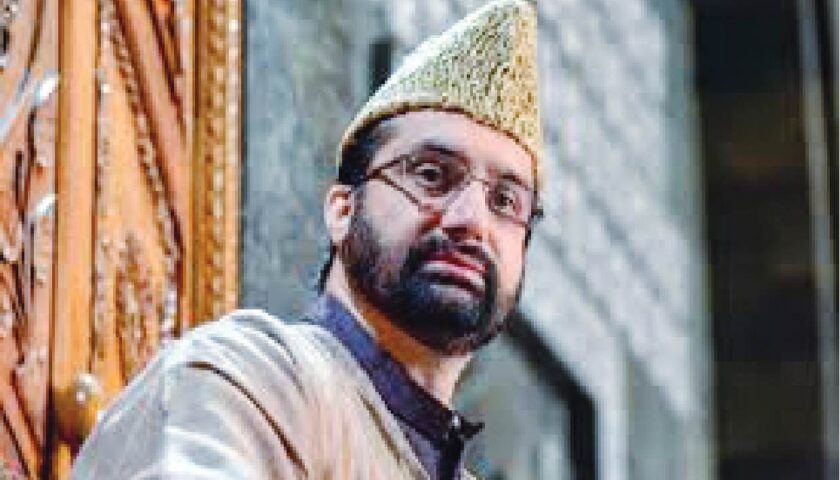With several mid-ranking and veteran separatists gravitating around Syed Ali Geelani, the aging pro-Pakistan politician is overshadowing moderate Hurriyat chief Mirwaiz Umar Farooq.
 Geelani’s position strengthened last week when three senior separatists, who have been associated with anti-India politics for more than two decades, announced their decision to join his hardline faction of the Hurriyat Conference.
Geelani’s position strengthened last week when three senior separatists, who have been associated with anti-India politics for more than two decades, announced their decision to join his hardline faction of the Hurriyat Conference.
Since the split in the region’s main separatist amalgam Hurriyat Conference in 2003, the moderates had remained more acceptable to Pakistan than Geelani’s hardline camp, which is now reversing.
The entry of Shabir Ahmad Shah, Nayeem Khan and Shia leader Aga Hassan into Geelani’s camp comes after several mid-ranking separatists broke away from the moderate faction of the Hurriyat Conference, led by Mirwaiz Umar Farooq.
Mirwaiz, who inherited the title of the chief preacher after his father Mirwaiz Moulvi Farooq’s assassination, had become a favourite of Pakistan during Pervez Musharaf’s regime when it had softened the country’s traditional position in the aftermath of the 9/11 attacks on the US —- which affected the subcontinent’s geopolitics —- and was ready to settle the Kashmir issue on the basis of a four-point formula.
The defections from within the moderate camp, gaining strength of the hardline faction and Pakistan’s increasingly stern Kashmir-centric rhetoric has, however, pushed Geelani to the centre-stage of the region’s separatism.
Kashmir’s leading socio-political group Jamaat-e-Islami, which has served as the crèche for many top militants, is also warming up to Geelani after a long fallout between the two.
The Jamaat-e-Islam’s influential new chief Ghulam Mohammad Bhat visited Geelani at the latter’s home in a sign that the two are mending their old rivalry.
Khan, who was formerly associated with the Mirwaiz camp and joined the rival hardline faction last week, said it was Geelani’s ‘unflinching stand’ that had made him attractive. “The stand taken by Syed Ali Geelani and the stand taken by Pakistan, I don’t think there is much gap,” he said.
Analysts, however, say the possible change of guard within separatism in Kashmir will have little impact on Pakistan’s policy and it will keep on “cultivating everybody”.




